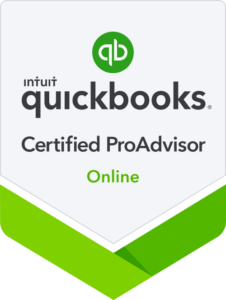
Currently, eligible taxpayers can deduct up to twenty percent of their qualified business income.
However, when it comes to delineating the specifics surrounding qualified business income deductions, it is best to consult a financial specialist. Tax laws are consistently changing and navigating potential tax deductions can be complicated and time consuming. However, if done so correctly, declaring certain business income deductions can lead to lower tax payment requirements, reduced overall tax bills, and increasing your take home capital.
Qualified Business Income
Qualified business income (aka QBI), according to the IRS, is the net amount of qualified items of gain, deduction and loss from any qualified trade or business. There are a number of items that QBI does not include, which can include, but are not limited to the following examples:
- Wage income
- Foreign currency gains or losses
- Investment items: capital gains or losses, or dividends
- Annuities
- Interest income improperly allocated to or in no relation to a trade or business
- Income, loss, or deductions from principle contracts
- Items that are not properly includable in taxable income
The deductions that can be taken must be associated with accurately declared business income.
Limitations
Qualified business income deductions are not a free-for-all, as the IRS has implemented certain limitation, with which any good accountant will be privy. It is important to note that a taxpayer will never be eligible to take a deduction greater than twenty percent of their QBI. Qualified business income deductions will be less than twenty percent of a taxpayer’s QBI if he or she is single and makes more than $157,500 or is married, filing jointly, and makes more than $315,000.
Furthermore, taxpayers may benefit from reducing their deduction by an overall limitation, which can be best understood with guidance from a financial professional.
QBID
Qualified Business Income Deduction (QBID) was derived out of Congress passing the Tax Cuts and Jobs Act (TCJA), which lowered the C corporation tax rate from 35% to 21%. Due to the fact that Congress did not want to put owners of other entities (S corporations, partnerships, and sole proprietors) at a disadvantage, by leaving them with a substantially higher tax responsibility, they created Section 199A, also known as Qualified Business Income Deduction.
Qualified Business Income Deduction is based off of one’s QBI. It is a below the line deduction and is the last deduction before determining a taxpayer’s taxable income. A benefit of QBID is that it can be paired with either an itemized deduction or the standard deduction. This deduction is only available to individuals who have pass-through income. If a taxpayer has multiple pass-through entities (S corporations, partnerships, Limited liability companies (LLCs) and sole proprietors) with QBI, the QBIDs must be combined.
What Next
Calculating your qualified business income deduction can be a multilayer process. If you are unsure if your QBI qualifies you for QBID, it is best to seek guidance from a professional. They will not only help steer you in the proper direction in terms of accurately filing your taxes, but could very well save you money in both the short and long term.
For Further Information
If you follow your instincts and are clear with your needs you will likely find an accountant that is an excellent fit. While the task to connect with the right accountant may seem overwhelming, please keep in mind it will be worth it in the long run. The financial guidance that a good accountant will provide during one’s lifetime can result in significant financial gain. With the full range of accounting services Allman & Allman APAC provide, we are certainly equipped with the expertise for which you may be in need. Seeking guidance from our firm will proved you the opportunity to work with individuals armed with broad and deep financial knowledge, able to provide advice on a wide range of issues. As a full service public accounting firm, our professional services will surely help you succeed and thrive.
Please feel free to reach out to Allman & Allman APAC via email at [email protected] or via phone (760) 773-1120 for our Palm Desert office or (424) 334-1120 for our Torrance office. We’ll be happy to discuss your situation and find out how we can help you grow. We look forward to hearing from you.



